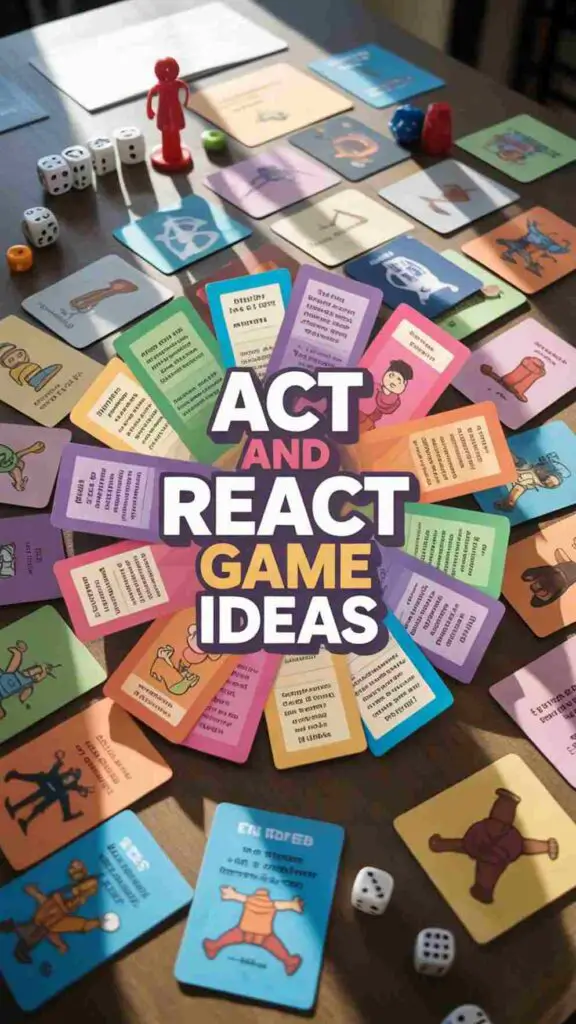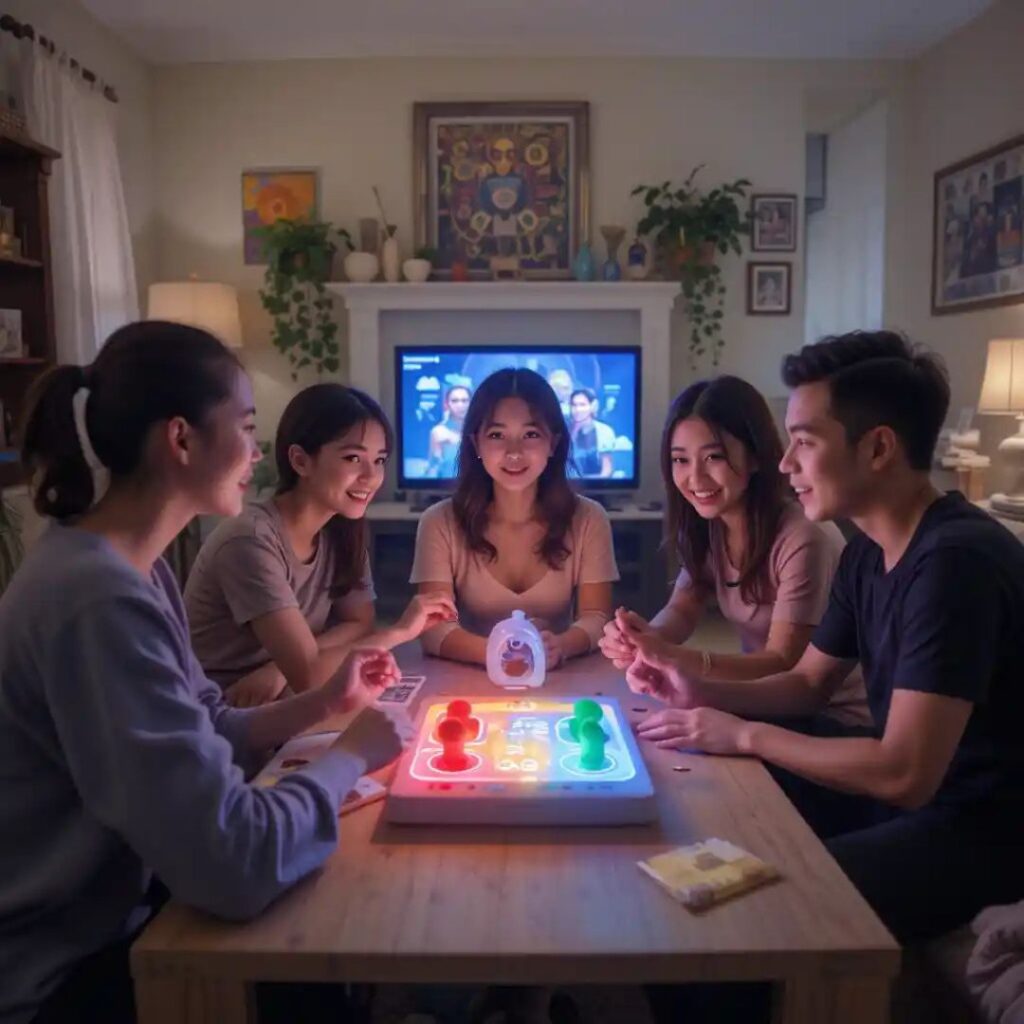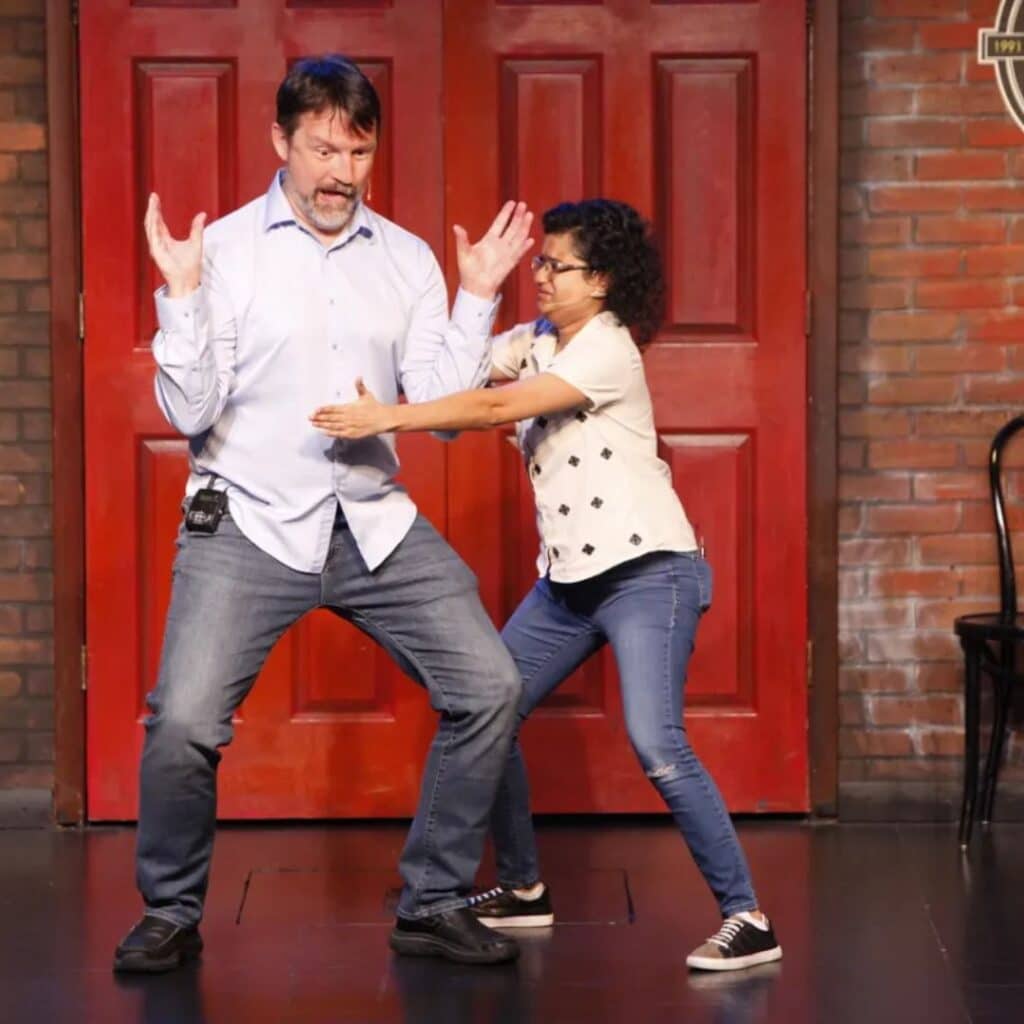Act and React Game Ideas – Act and react games are interactive party activities that involve improvisation, quick thinking, and expressive communication. These games are ideal for building confidence, encouraging creativity, and breaking the ice in group settings. A popular example is “Charades,” where players act out phrases or movie titles without speaking, while others guess.
“Freeze and Justify” is another favorite, where one person freezes mid-act, and another replaces them and continues the scene in a new context. “Emotional Switch” requires players to perform scenes while switching emotions on command. These games can be played with or without a competitive element, and they work especially well in drama workshops, team-building events, or casual game nights, helping participants loosen up and connect.
Act and React Game Ideas
Emotion Switch
Players take turns acting out a scene while the host calls out random emotions (e.g., happy, angry, scared). Each player must immediately switch their acting to reflect the new emotion. This develops improvisation skills and emotional expression, making it perfect for drama classes or ice-breaking.
Freeze and Justify
One player acts out a scene. At any moment, another player yells “Freeze!”, taps them out, takes their position, and begins a new scene, justifying the current pose. It boosts creativity and quick thinking as players must explain unusual poses in a coherent storyline.
Mirror Mirror
Two players face each other; one leads and the other mimics them like a mirror. After a minute, they switch roles. This enhances attention, coordination, and teamwork. It works well for building trust and synchronicity in group dynamics or theater warm-ups.
Situation Shuffle
Players receive random scenarios (e.g., stuck in an elevator, won a lottery). Another player must react realistically to their actions, despite not knowing the situation. This sharpens listening and adaptability as players must interpret context through body language and dialogue.
Silent Reactions
One player acts out a situation in silence (e.g., spilling coffee), while others must react vocally without seeing the original action. This game encourages interpretation and imagination, helping players focus on reaction rather than performance.
Opposite Day
Players act out normal situations (e.g., ordering food), but must react in the exact opposite way of what would be expected (e.g., angry when served delicious food). It’s hilarious and forces players to think creatively about typical behaviors and social norms.
Chain Reaction
One player starts an action, like sneezing. The next must react logically (e.g., saying “bless you”), triggering a new action. Each player builds on the previous one. This encourages logical storytelling and continuity in group scenes.
Status Swap
Assign social statuses (e.g., boss, intern) randomly. Players act out a scenario but must react to each other’s implied status through behavior and tone, not words. It’s great for teaching subtle cues in acting and understanding hierarchy and social roles.
Emotional Echo
A player delivers a line (e.g., “I can’t believe this!”) in a certain emotion. The next repeats the line but changes the emotion. The process continues until everyone has had a turn. It teaches emotional range and voice modulation.
Misunderstood Reactions
One player says a sentence (e.g., “I lost my phone”), but the next reacts based on a completely different assumed meaning (e.g., thinking it was metaphorical). The miscommunication builds a humorous chain. It enhances creativity and comedic timing.
Who Started It?
A group stands in a circle. One player secretly starts a repetitive action (e.g., tapping their foot), and others copy. One detective must guess who started it. This improves observation and subtle non-verbal acting skills.





